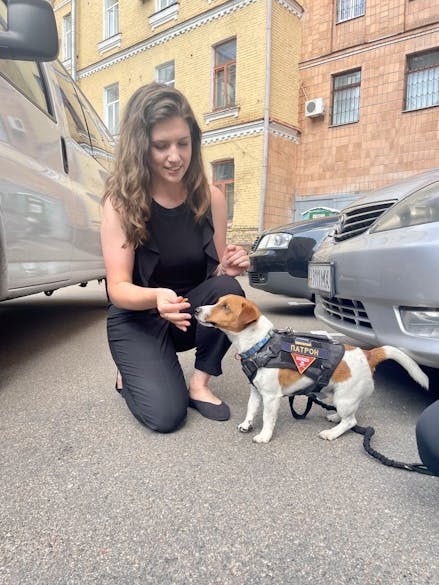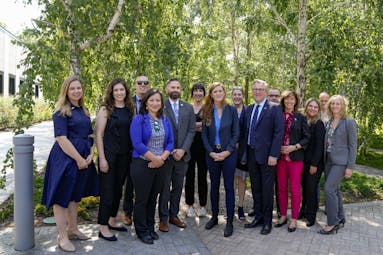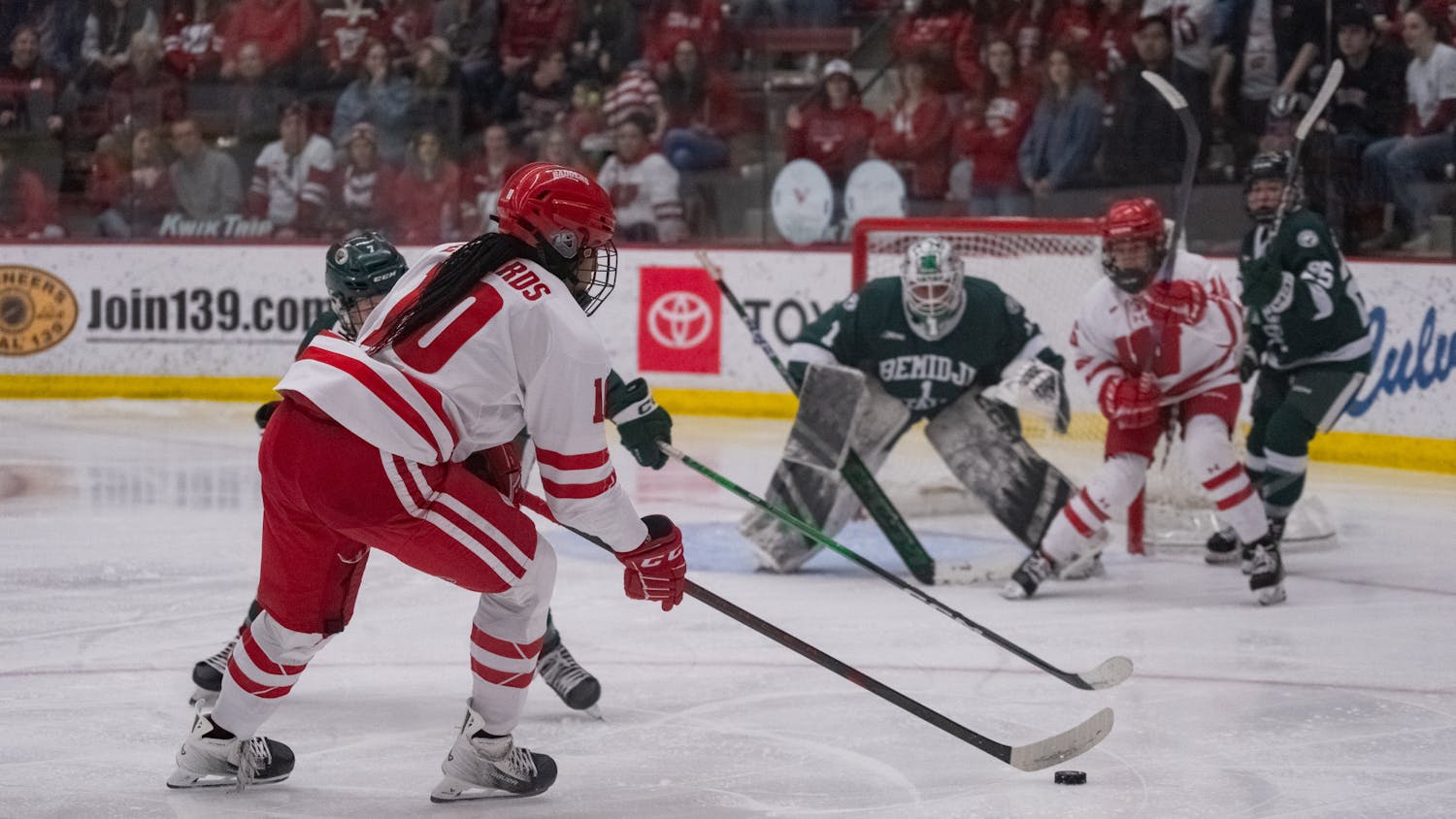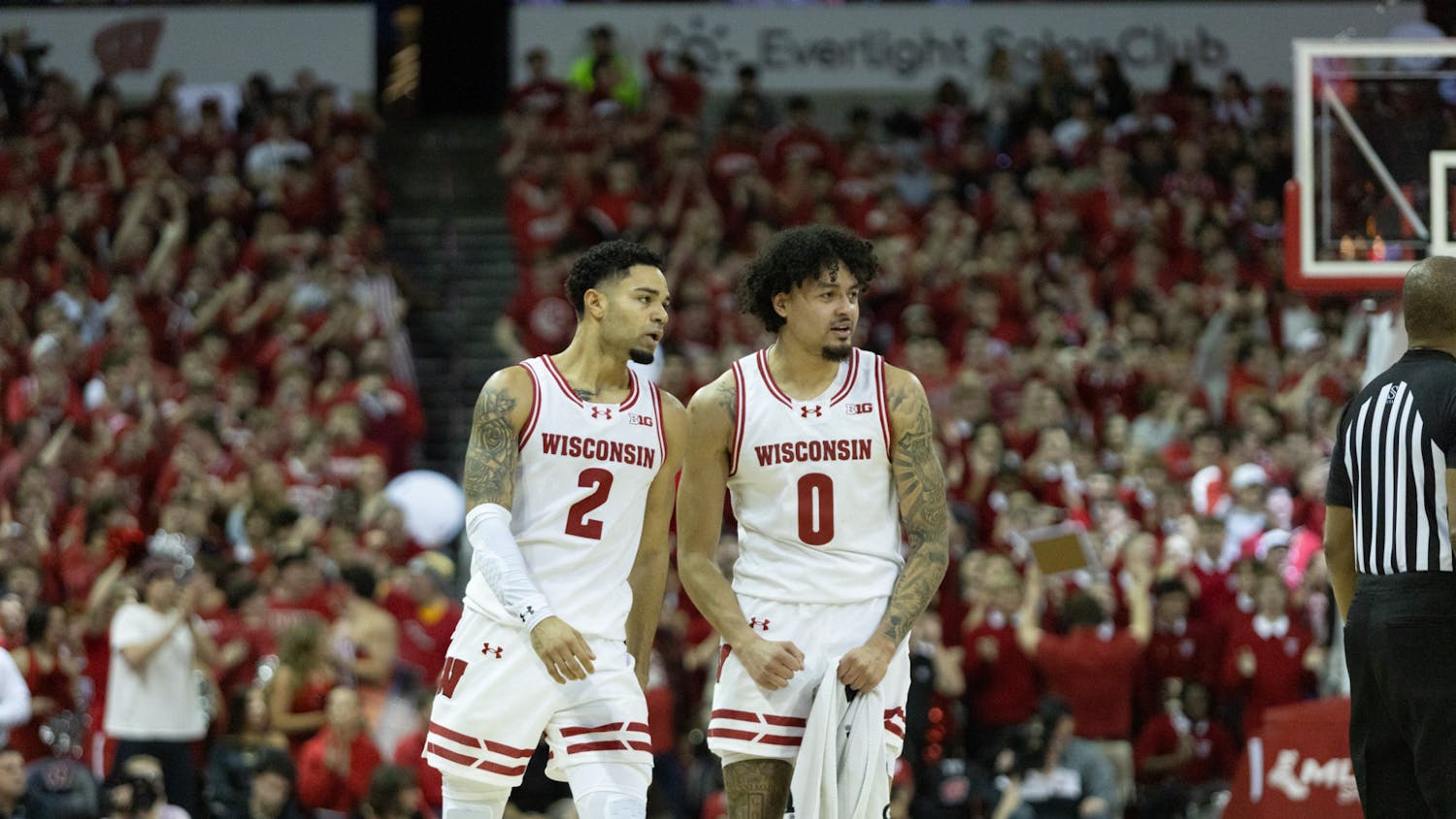For University of Wisconsin-Madison alumna Brooke Harding, the Wisconsin Idea means using her education to support her friends and colleagues on the ground in Ukraine.
Harding graduated from UW-Madison in 2014 with a bachelor’s degree in geographic information science and cartography. That year, she landed a GIS internship at the United States Agency for International Development, an independent federal executive agency that coordinates the administration of foreign aid and international humanitarian development.
In 2015, Harding took her first international work trip — a one-week map and graphic development position working with Ukrainian colleagues in Kyiv, the country’s capital. Harding said she quickly fell in love with the city and the team she worked with.
Six years later, Harding transitioned to a program management role for USAID’s Office of Transition Initiatives Ukraine support team.
That’s what she was doing when Russia invaded Ukraine in February 2022.
“When Russia’s full-scale invasion started on February 24, 2022, I was in Washington watching the news unfold. I was deployed to Poland in early March 2022 and have been [in Ukraine] ever since,” she told The Daily Cardinal via email correspondence.
Alongside USAID colleagues Shadrach Ludeman and Terah Yaroch, Harding is a finalist for a 2023 Samuel J. Heyman Service to America medal, which recognizes exceptional work from federal employees. The team coordinated buses and drivers for more than “13,000 at-risk Ukrainians” — Harding’s role involved finding ways to bring supplies and equipment to local partners and governments.
This interview has been edited for clarity and brevity.
What was that initial evacuation process like, and how long did it take?
In the initial two weeks following Russia’s full-scale invasion, I was in Washington, where our top priority was to support the safety of the team in the country, composed of both Americans and Ukrainians. Some evacuated to neighboring countries [and] others sought refuge in Western Ukraine, while others hunkered down in their hometowns.
Less than two days after the initial chaos of the invasion, our Ukrainian colleagues were on the phone finding any available drivers and buses to help support the safety and evacuation of fellow Ukrainians. It was astonishing to witness.
What has it been like working on the ground?
It is not lost on me or many other expats working in Ukraine that working in an active war zone assumes great personal risk. However, unless you have lived the experience, it is difficult to fully grasp or understand what people are going through. While being in Kyiv helps me stay grounded in reality, it can at times be surreal.
Some days it is business as usual — spending time working at the U.S. Embassy, getting out around town to meet with our Ukrainian government and civil society partners and arriving home before curfew starts. Other days, constant air alarms mean sheltering in place and working from a bomb shelter for hours [and] reporting back to Washington on how the attacks of the day have impacted response efforts.
Working and living in such a dynamic environment has shown me how important it is to, despite the circumstances, continue to actively prioritize good physical and mental health choices. While routines aren’t always possible, the power of proactively finding time for exercise, talking to a therapist, meditating or simply drinking enough water goes a long way.

Harding with Patron, Ukraine's bomb-sniffing dog.
Courtesy of the United States Agency for International Development
What educational and professional decisions led to you working at USAID?
I completed a degree in cartography and geographic information systems as well as a certificate from the department of Russia, East Europe, and Central Asian studies. At that point, I knew I was interested in Eastern Europe and wanted to travel as part of my job. With incredible mentorship from professors and instructors in both the Slavic and Geography departments, I was exposed to a lot of different opportunities I might not otherwise have known about.
In 2014, I took part in Profesor Tomislav Longinovic’s one-month study abroad experience in Croatia called “Conflict and Culture.” I had traveled abroad before for fun, but this was the first opportunity to be completely immersed in the culture and context of a place with the idea to not just study the culture but live it firsthand.
I also attended a 2014 OpenStreetMap conference called “State of the Map” in Washington, D.C. [after] a teaching assistant from my cartographic design course encouraged me to apply for a scholarship that supported women to attend. This was my first trip and exposure to D.C. — I met so many people who were passionate about how tech can help solve problems in the world. This included people from Google and Facebook, news organizations like Bloomberg, the New York Times and the Atlantic, startups like Development Seed and Map Box, and then a few people who worked in International Development at USAID.
A GIS internship [later] opened up on USAID’s Office of Transition Initiatives’ Data Analysis Team. I applied and just a few weeks later moved to Washington. I spent seven years on the Data Analysis Team, during which I had the opportunity to work both remotely and in person with people from the Balkans, Colombia, Ukraine and Pakistan.
Having been encouraged to pursue opportunities in cartography, GIS and Eastern European studies, the connections and exposure I gained during my education allowed me to find a very specific career niche.

Harding alongside Samantha Power, current Administrator of the United States Agency for International Development.
Courtesy of United States Agency for International Development
You’ve surely faced innumerable challenges throughout your work in Ukraine — with that in mind, have you had silver linings or moments of enrichment that have come from your work here?
Great question, especially because these challenges are not limited to the frontlines. They span across the country as Russian attacks target primarily civilian infrastructure.
The silver lining has been USAID’s ability to adapt and expand assistance to meet needs on the ground, including through humanitarian supplies, economic assistance, support for mental health programming, food production and exports, and helping keep the energy grid running amid Russia’s strikes.
At the same time, USAID supports key reforms and proactive investments that will lay the groundwork for a successful postwar recovery that will benefit all Ukrainians when they win the war.
During the war, all of USAID’s more than 40 development programs continued to operate, not stopping for even a single day despite the brutal reality. The USAID/OTI Ukraine program is just one of these 40 programs.
How has your experience of assisting the efforts in Ukraine changed as the war has continued? What keeps you going?
The evolution of what I’ve witnessed over the last 18 months has led me to believe that my Ukrainian colleagues are capable of anything.
They’ve worked everywhere from cars and trains to underground bomb shelters, survived a winter with frequent power outages and limited access to water and heating, and endured many sleepless nights as a result of constant missile and drone attacks by Russia on civilian infrastructure. Despite this, they continue to protect their unique cultural heritage and values which, in even the darkest moments, includes maintaining a sense of humor.
What keeps me going? It’s exactly this. The commitment and resilience of my Ukrainian colleagues and friends in the face of Russian aggression as well as the solidarity and support from family and friends back in the U.S. that sustain Ukraine’s momentum toward winning the war.
Anything else you’d like to add?
At the risk of sounding cheesy, attending the University of Wisconsin-Madison and working in Ukraine have truly been two greatest privileges in my life, and embracing the Wisconsin Idea has played a huge role in that. At UW-Madison, I was encouraged by my professors and peers to learn and explore not just my community but the world and what my place in it could be.
In Ukraine, I learned what it means for individuals and an entire country to truly sacrifice and fight for a pluralistic, open and democratic society; not just for themselves but as an example for the rest of the world. To past and future generations of Badgers, remember that the privilege of education and the pursuit of a better society come with a responsibility to contribute to the common good, and who better to do that than us. On, Wisconsin!
Liam Beran is the former campus news editor for The Daily Cardinal and a third-year English major. He has written in-depth on higher-education issues and covered state news. He is a now a summer LGBTQ+ news fellow with The Nation. Follow him on Twitter at @liampberan.






